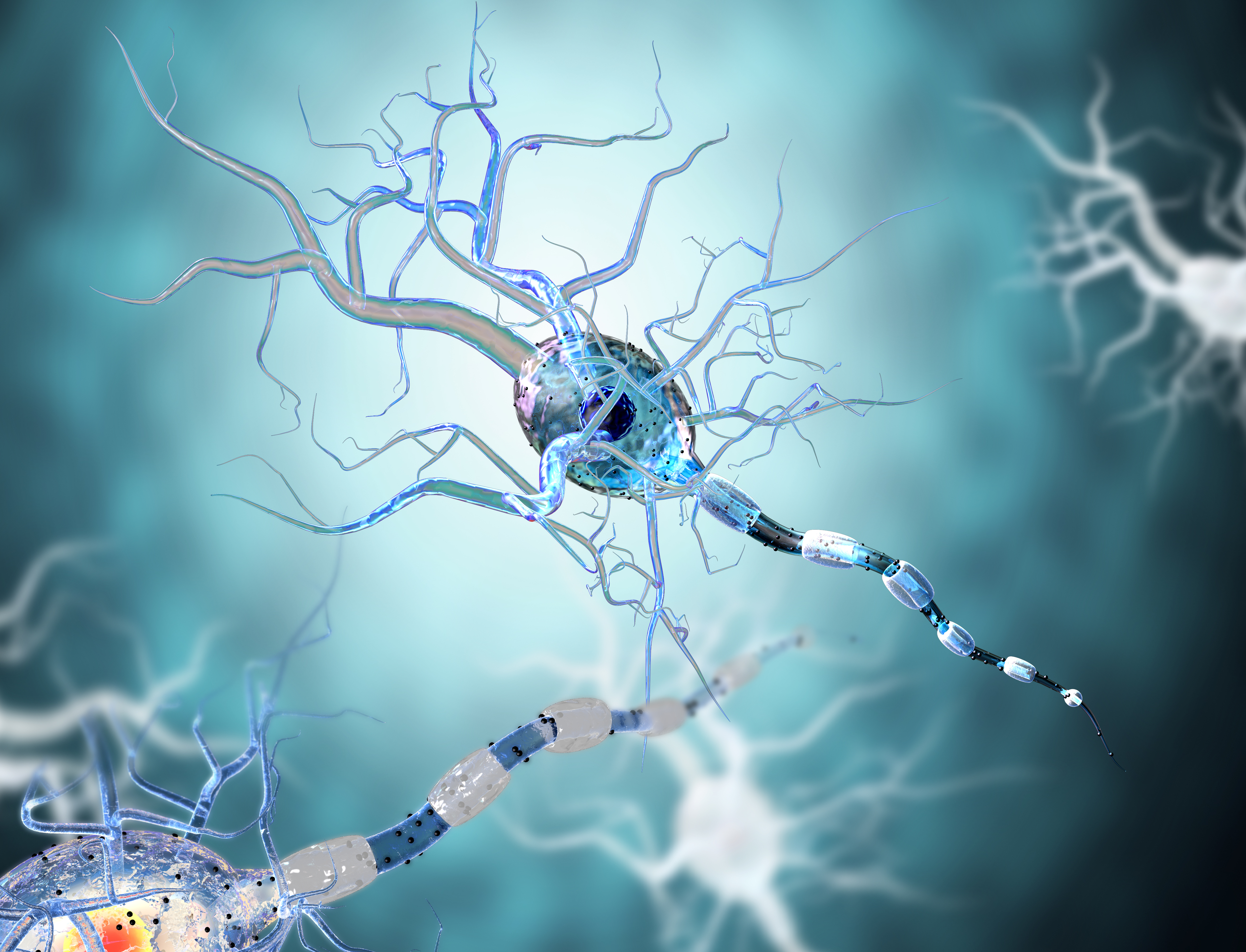

Several lines of evidence suggest that sphingolipid metabolism controls CNS innate immune mechanisms that drive neurodegeneration. We and others found that antibodies to sphingolipids are associated with neurodegeneration in multiple schelerisis (MS). In addition, sphingolipids themselves show neurotoxic activity, and promote neurodegeneration and disease progression in MS. Indeed, sphingolipids control neurodegeneration in the MS preclinical model EAE (experimental autoimmune encephalomyelitis). Consequently, the modulation of sphingolipid metabolism arrests neurodegeneration in mouse EAE. Collectively, these findings identify sphingolipid metabolism as a potential therapeutic target to arrest neurodegeneration. We hypothesize that the pharmacological modulation of sphingolipid metabolism is a therapeutic approach to arrest neurodegeneration in MS and other neurologic a disorders. In this project, we propose to investigate the therapeutic potential of targeting sphingolipid metabolism on neurodegeneration. To this aim we will knock down in vivo genes involved in sphingolipid metabolism and analyze the effect of knock down on neurodegeneration. Genes of interest identified in our in vivo screening will be further analyzed for their genomic and metabolic effects. In summary, these studies will determine the role of sphingolipid metabolism in neurodegeneration, and identify candidate targets for therapeutic interventions.
Astrocytes play important roles in multiple sclerosis (MS). Glial scarring limits the recruitment of T cells and monocytes to the inflamed central nervous system (CNS) in acute models of experimental autoimmune encephalomyelitis (EAE). Astrocytes also control extracellular glutamate levels, and therefore limit neuronal death caused by excitotoxicity. Conversely, glial scarring interferes with myelin repair, and chemokines produced by astrocytes recruit inflammatory cells to the CNS. Because of these and additional functions, astrocytes are considered important players in CNS inflammation and repair during MS. However, the mechanisms controlling neuroprotective and pro-inflammatory activities of astrocytes are mostly unknown.
MS is a chronic demyelinating autoimmune disease of the CNS. In most patients, MS initially presents a relapsing-remitting clinical course (relapsing-remitting MS, RRMS) that is followed by a progressive phase (secondary progressive MS, SPMS) of continued and irreversible accumulation of disability. Several therapies are available to treat RRMS, but no therapy is available for the treatment of the SPMS phase that is eventually reached by most MS patients. Recent findings suggest that while the adaptive immune response (T cells and B cells) drives the RRMS phase of MS, the local CNS innate immune response (astrocytes, microglia and CNS-infiltrating macrophages) promotes disease progression in SPMS. Astrocytes are the most abundant cells in the CNS, providing nutrients and support to neurons. In the context of neuroinflammation, astrocytes control CNS infiltration by leukocytes and regulate the activity of microglia, oligodendrocytes and cells of the adaptive immune system. However, the mechanisms that regulate astrocyte function during chronic CNS inflammation and MS, and potential targets for the therapeutic modulation of astrocyte activity are unknown.
We found that lactosylceramide (LacCer) produced by the enzyme B4GALT6 in astrocytes controls CNS inflammation and neurodegeneration. Thus, we hypothesize that glycosphingolipid metabolism is a therapeutic target to arrest neurodegeneration in MS and other neurodegenerative diseases. Thus, we propose to analyze the contribution of B4GALT6, glucosylceramide synthase (GCS) and ceramide synthase (CS) to astrocyte activation, CNS inflammation and neurodegeneration in vivo and in vitro. These studies will identify the best candidate for the therapeutic targeting of glycosphingolipid metabolism as a therapeutic approach for SPMS and other neurodegenerative diseases.
The objective of this project is to study the therapeutic potential of targeting B4GALT6, GCS and CS to modulate astrocyte activity, CNS inflammation and neurodegeneration.